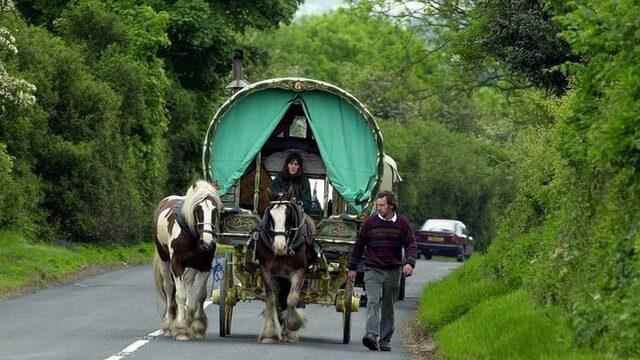In the UK, one of the bills on the agenda at the beginning of 2022 is Police, Crime and Punishment. The final debate of the bill is taking place in the House of Lords, the upper house of the British Parliament, this week.
The bill, which passed through many discussion stages in the House of Commons and reached the House of Lords, came to the fore after the harsh intervention of the police in the crowd gathered to protest violence against women after 33-year-old Sarah Everard was kidnapped and killed while walking to her home in the evening in March 2021 in England. came.
Lawmakers, lawyers, non-governmental organizations and journalists following the bill are worried that the new regulation will give police and government disproportionate power.
Criticism of the new regulation intensifies that it is against human rights and will limit the rights to protest. In recent months, protests have been held in many cities of England demanding the annulment of the law, and there have been clashes between the protesters and the police many times.
British Home Secretary Priti Patel, in the video she shared for the new year, said that the bill was prepared to reduce crime rates in the country and make the streets safer, and that all necessary support will be provided to the police to protect both themselves and the public.
“Passing this bill through parliament is essential to stop the climate protesters blocking our roads in protest and destroying the lives of people who obey the rules,” Patel said.
What’s in the bill?
Intervention in protests
In the UK, police already have the power to intervene in protests if they cause serious public disorder, serious damage to property or a serious disruption to social life.
The proposed bill would also give police the power to define start and end times for protests and control the volume. The police will be able to intervene even in one-man protests.
According to a clause in the final debated bill, people who have been penalized for protesting or who have previously been accused of causing havoc in protests may be barred from participating in protests.
In addition, locking or tying themselves to an object and blocking roads by protesters can be made crimes punishable by up to 6 months imprisonment or unlimited fines.
Such protest techniques are protest groups such as Extinction Rebellion, which has held climate crisis protests in the UK since 2018, and Insulate Britain, the campaign group that aims to reduce carbon emissions from heating by completely isolating homes in the country by 2030. frequently used by
Power to search without doubt
The bill also enlarges the police’s power to stop and search people or vehicles on the streets without any doubt.
According to a study conducted by the Criminal Justice Alliance in the UK for 2015 and 2016, black people are 6 times more likely to be stopped and searched on the street than white people.
Those who damage monuments can be sentenced to 10 years in prison.
Under the proposed bill, damaging any monument could be made a crime punishable by up to 10 years in prison.
This change was added after the 1895 statue of a slave trader named Edward Colston was lowered from its pedestal with ropes around his neck and thrown into the river during anti-racism protests in Bristol last summer.
‘**These changes**, will turn a way of life into a punishable crime**‘**
Another part of the bill debated by human rights organizations is making trespassing on private land in the UK a criminal offense.
Liberty, one of the UK’s leading human rights organizations, claims that this clause will negatively affect the “gypsy, traveler and Roman people” who lead a nomadic life and should be removed from the bill altogether.
“These changes will make a way of life a punishable crime,” says Billy Welch, titled ‘Chief Gypsy’ in Darlington, England.
Another controversial item is the authorization of the police to request private information of people from institutions providing health and education services on the grounds of “preventing violence”.
More than 600 doctors, nurses and teachers in the UK have sent letters to Priti Patel that they do not want to break the trust of those they care for.
Other parts of the bill include extending prison sentences for assaults against women, healthcare workers and children, as well as changes in penalties for dangerous driving and deaths.
Courts can also empower judges to sentence child murder suspects to life in prison.
How was the bill received?
Many parts of the bill have been criticized by MPs, lawyers, civil society and journalists in the UK.
Critics of the bill argue that the proposed regulations are “a step towards an authoritarian system”.
According to British journalist George Monbiot, being sentenced to prison for protesting is “a sign that the country has become a “police state.”
British Labor MP David Lammy describes the bill as “a mess that has been poorly thought out and wants to take away people’s rights to free expression and democratic protest”.
The Ministry of Interior, on the other hand, states that democracy will always be respected and the principles of human rights will be respected.
The campaign group Rights of Women argues that the bill lacks a long-term plan to target violence against women. The ministry said that the penalties for serious crimes against women will be tightened and changes will be made to the bail rules for detainees.
Former British Prime Minister Theresa May, in her speech at the House of Commons a few months ago, said she agreed with many parts of the bill, but wanted to emphasize the importance of freedom of expression and the right to protest for democracy in the country.
“Of course, there are those who watch the protests in the country in recent months and ask why the government does not intervene, but the answer is that we live in a free and democratic country most of the time,” May said.
